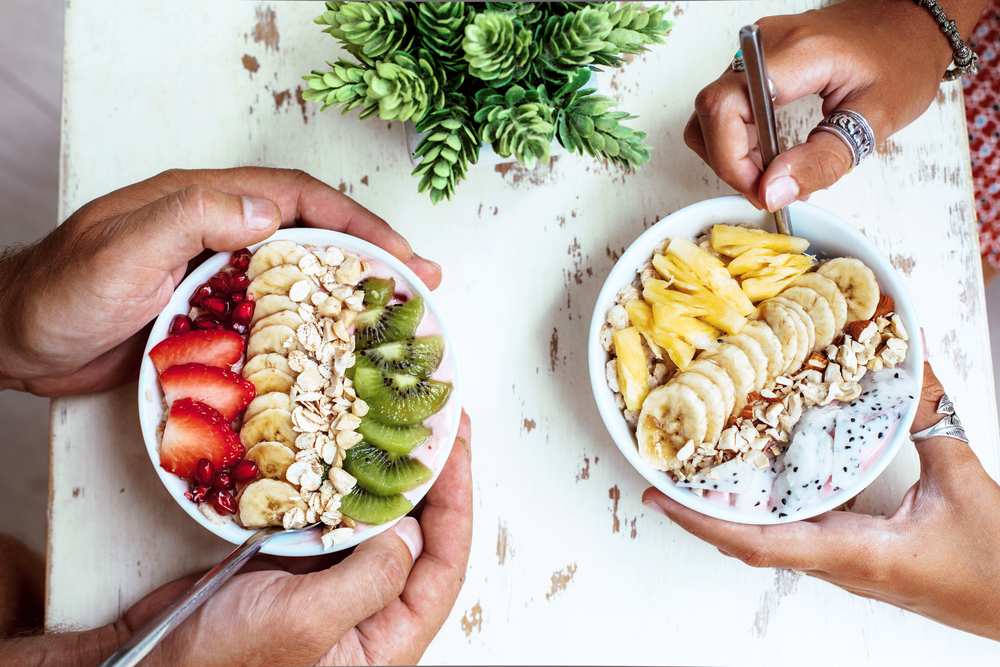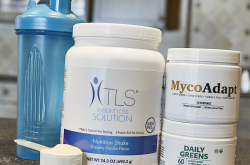In part 2 of this series, we are going to explore dietary fats. For the longest time, we’ve believed that dietary fat is evil. Hence, we started a low-fat/non-fat diet trend. Unfortunately, as we cut out the fat from our diet, we started to depend more on carbohydrates, especially refined, processed carbohydrates to satisfy our cravings. Many people are afraid of fat but not all fats are made equal. Fat plays an important role in maintaining a healthy vibrant body. Fat is the most calory-dense of the macronutrients at 9 calories per gram (carbs and protein are 4 calories per gram) because of its own energy storage. Don’t let the calories scare you away from consuming fat. This is why at TLS, we don’t count calories.
Different types of fat:
THE UGLY – Trans fats found in highly processed food. Manufacturers love using it because it is cheap and it is shelf-stable. Research has shown consistently that trans fats increase our LDL (bad) cholesterol and decrease our HDL (good) cholesterol. In addition, long-term intake of trans fat has been shown to promote inflammation and leads to more health issues and complaints.
THE BAD – Saturated fats found in animal sources and some plants (coconut and palm oil) are solid at room temperature. It has been found that a diet of saturated fat, especially, animal saturated fat has been shown to increase LDL (bad) cholesterol.
THE GOOD – Monounsaturated fats (olive oil, avocado, nuts, seeds) and omega-3 (fatty fish such as salmon, tuna, mackerel, sardine, and anchovy) are known as good fats because they support heart health. Omega-3 is important to support eye and brain health in addition to maintaining healthy inflammatory levels.
What about Omega-6?
- Omega-6 in a small amount confers no health concerns but a high intake of processed food and eating out leads to overconsumption of soybean, safflower, and corn oil. An imbalance of omega-6 to omega-3 consumption can increase our inflammatory level and lead to many chronic health issues.
What are the benefits of fat:
- Helps support healthy cells, organs, and the brain. Did you know that our brain is made up of 60% fat in composition? This means you need fat to ensure your brain works the way it should – children need fat for brain development and adults and older adults need fat to prevent cognitive decline.
- Helps you feel full and satisfied – this is key when it comes to maintaining a healthy lifestyle. If you are not satisfied with your meal, you are likely not going to maintain healthy eating in the long run. This is why all of our menu plans in TLS, Transition Lifestyle System, encourage the consumption of 2 servings of healthy fat daily because of their benefits and impact on blood glucose.
- Like fiber and protein, it also helps you to blunt the glycemic impact of your meal which means it slows down the rate at which food is digested so your blood sugar stays within the healthy range for energy, mood, and maximum fat loss.
- Helps to increase the absorption of fat-soluble vitamins (vitamins A, D, E, and K) which all play important roles to support a healthy body.
Just in case your old beliefs are still lurking in your mind, we hope this article gives you peace of mind knowing that you can and should include healthy fats as part of a balanced diet. With TLS, we believe if you make room in your meal to always include high fiber, quality protein, and healthy fat, you will always be satisfied, and best of all, it’s a lifestyle eating that you can maintain for life.
Cheers to health and cheers to taste!





Comments (0)